If you are considering dental implants, you may be wondering what the entire timeline looks like from start to finish.
At Astoria Dental Group, we perform every step of implant treatment at our office, and our highly knowledgeable doctors can explain what to expect from your initial consultation through your long-term care.
Why should you undergo the dental implant process at our office?
At Astoria Dental Group, Dr. Clifford Degel and Carmel Every-Degel carefully screen every dental implant candidate. During this appointment, we will also plan your custom procedure and screen you for conditions such as bone loss. Our doctors work closely with each patient to find a tooth replacement option that fits their needs, budget, and time constraints.
In some cases, your dental implants timeline could be considerably shortened. With teeth-in-a-day, our doctors can place mini implant posts and attach a Prettau® bridge or full denture in a single office visit. Additionally, our dentists use SIMPLANT® software and Mini Drive-Lock® implants to speed your recovery time.
While some dentists place implants then send their patients off to another dentist or prosthodontist, our highly trained doctors provide all types of custom-made restorations that function and feel real within your smile, helping you improve your self-esteem.
Our patients’ comfort and safety are our primary concerns during any procedure, and we want you to feel completely at ease before beginning your treatment. Our office is designed to calm and relax our patients; from aromatherapy to massage chairs, we will go the extra mile to ensure your comfort.
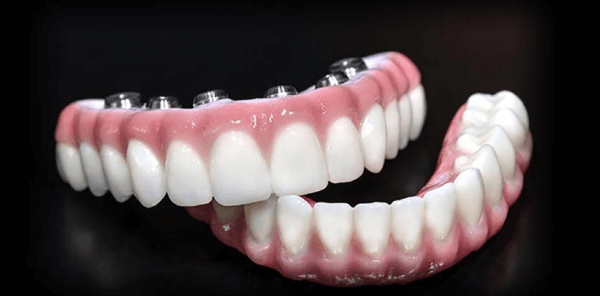
The Prettau implant bridge can replace a full arch of missing teeth in just one visit.
Here is what our patients can expect during the implant process…
If you have missing teeth, you understand the negative impact it can have on your life. In this clip, cosmetic dentist Clifford Degel explains the dental implant procedure, how it has changed over the years, and the different types of implants available.
Patients who want dental implants are often hesitant about the required time commitment for treatment. Your unique timeline will vary based on a number of factors, including whether you choose traditional or mini implants. With traditional dental implants, you may need to wait several months before you can receive your restoration. However, Dr. Degel and Dr. Every-Degel also offer advanced same-day implants at our office. For eligible patients who want to expedite the dental implant process, we can place mini dental implants and the restorations in just one appointment.
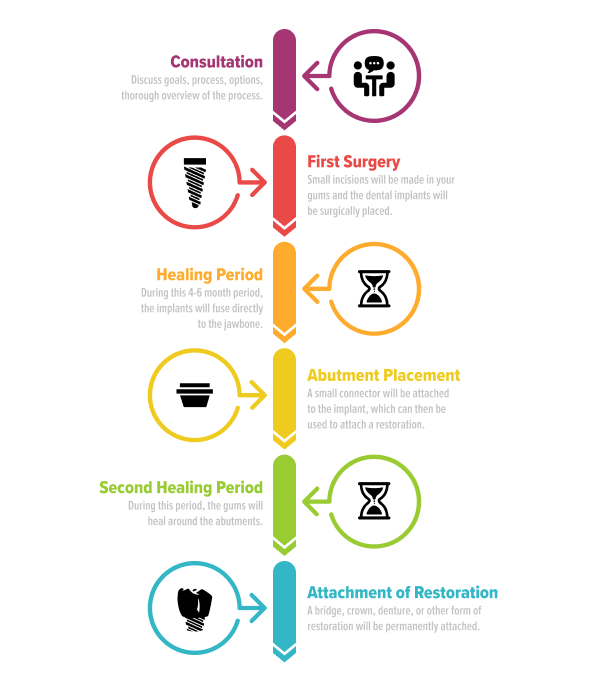
Your specific timeline will depend on your unique procedure. If you are replacing multiple teeth, the process will be longer than if you are replacing a single missing tooth. For example, if you undergo a bone graft, recovery could take up to 12 months. Alternatively, if you receive teeth-in-a-day, your dentist will place mini implant posts and attach your restoration in the same appointment. Your dentist will provide a consultation before your procedure. At this time, he or she will plan your surgery and help you choose the right type of implants for your needs.
Although dental implants can require a lengthy time investment, they offer long-lasting benefits. By replacing missing teeth, dental implants can help you improve your self-confidence for a lifetime.
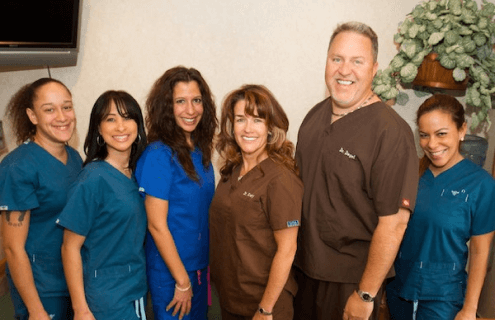
Choosing a method to restore your missing teeth is an important decision that will impact your appearance and oral health for years to come. We strive to make this decision process as simple and comfortable as possible. Dental implants are widely recognized as the best restorative option available. These titanium posts are surgically placed in the jaw, where they can support a dental crown, bridge, or denture.
We individually tailor each course of treatment so that it alleviates any anxiety you have, in addition to restoring function and aesthetics to your smile. The first step in the process is a dental implants consultation at our dental practice. During this initial appointment, we can determine your candidacy and begin to form a personalized treatment plan. Our skilled dentists, Dr. Degel and Dr. Every-Degel, will take the time to carefully explain each step in your procedure, ensuring you fully understand all aspects of your care before your surgery.
During your first visit, one of our doctors will perform an examination of your mouth including an oral cancer screening and temporomandibular joint (TMJ) evaluation. You will discuss a detailed health history so your doctor can identify any possible conditions that might complicate your procedure. If your doctor discovers any signs of periodontal disease or infection during the exam, we will need to bring these conditions under control before beginning your implant procedure.
After your oral and general health are evaluated, we will take tomographic x-rays of your mouth to create a detailed image of your teeth and underlying bone structure. A tomographic x-ray produces images that are similar to a computerized tomography (CT) scan. This is an invaluable tool for planning your dental implant surgery. These images will allow us to assess the size, density, and health of bone tissue available to support the dental implant once it is placed. If the doctor determines that there is not an adequate supply of hard tissue, he may recommend a bone grafting procedure to strengthen the jaw before your implant surgery.
After the examination and prerequisite work is complete, the final step in your dental implant consultation will be to design your new smile. Factors like your restorative goals, budget, and aesthetic concerns will help determine which type of restoration and implant is right for you. Modern dental prosthetics use biocompatible materials that look very similar to your natural teeth. In fact, some restorations like Prettau® Anterior are so lifelike that they are virtually indistinguishable from the surrounding teeth.
Before you receive your implants, you will have a complete consultation with Dr. Degel or Dr. Every-Degel. Your dentist will determine if you are a good candidate for dental implants and begin planning your personal procedure. At this time, he or she can give you a good approximation of your dental implant timeline. You may require some preparatory procedures before you can receive implants. For example, if you have suffered jawbone recession as a result of tooth loss, you may require a bone graft.
During this procedure, your dentist will enhance your jawbone to create a strong base for your implants. Bone grafting will affect your implant timeline. Typically, you will have to wait six to 12 months for your bone to heal. After recovery, Dr. Degel or Dr. Every-Degel can place your implants.

When you come in for your initial consultation with one of our dentists, we will perform a thorough examination of your mouth and recommend preparatory treatment, if it is needed.
We will use X-rays and other imaging techniques to get a clear picture of your existing bone structure and the underlying condition of your teeth. This allows our dentists to identify any existing dental health problems, such as tooth decay or gum disease. Periodontal disease and tooth decay will need to be treated before dental implant surgery can be scheduled.
The X-ray images will also allow us to evaluate the patient’s jawbone density. Patients must have enough healthy bone tissue to support the implants. If bone density is insufficient, a bone grafting procedure will be performed before the implant can be placed.
Your bite will also be analyzed to determine if malocclusion is contributing to chronic teeth grinding, a problem that can affect the outcome of the implant procedure.
Prior to implant surgery, our dentists will discuss your dental concerns and goals with you to tailor your treatment plan to your unique needs. We will also use imaging technology to plan out the number of implants that will be used, and determine precisely where they will be placed within the jaw.
Barbara Wilson says she feels fantastic after having her smile renovated with dental implants and a fixed bridge. She originally had implants installed by a different dentist and was unhappy with the results. That is when she turned to the smile specialists at Astoria Dental Group. Not only did Dr. Degel restore Barbara’s smile, he helped her recapture her confidence.
Most patients who are missing one or more of their natural teeth and have sufficient jawbone mass to support the implant posts will be suitable candidates for dental implant surgery. Patients who lack the necessary jawbone density may first have to undergo a bone grafting procedure in order to improve their candidacy for implant dentistry.
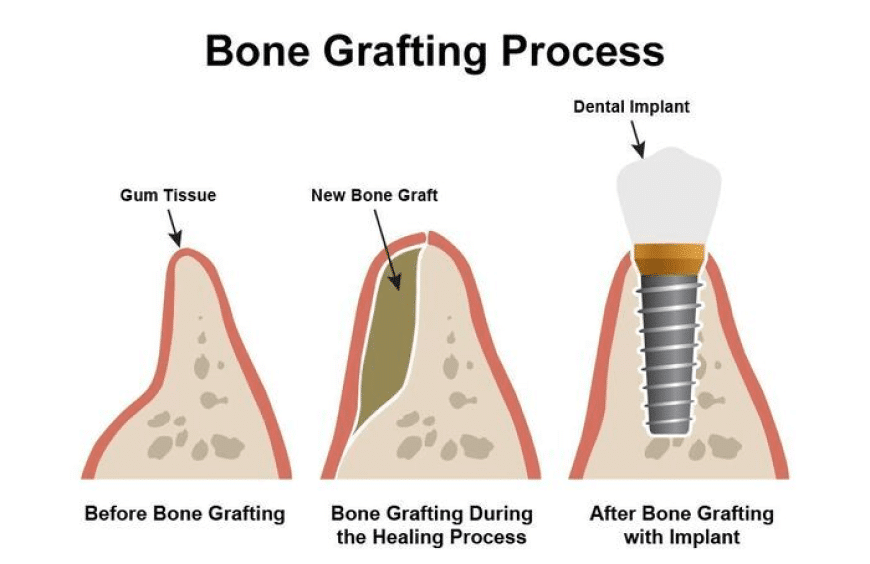
Our office is equipped with the team, techniques, and high-end technology to perform dental implant surgery for virtually every patient.
The success of dental implant surgery depends on careful screening of patients and meticulous planning of the placement of the implants. Dr. Degel will provide treatment for any periodontal or other oral health issues that need to be resolved in order to ensure the best results possible for your dental implant surgery.
It is very important to follow your doctor’s instructions carefully to ensure the best results possible.
Additionally, mini implants offer many of the same benefits that have earned traditional dental implants recognition as a superior restorative solution. Mini implant-supported dentures will not slip out of place, and do not require messy adhesives. With proper care, mini dental implants can provide a lifetime of support for your dental prosthetic. Most importantly, mini implants and traditional implants alike preserve the health of the jaw bone and can halt further atrophy.
When the procedure is performed by an experienced professional with the proper technology and exceptional attention to detail, dental implant surgery is an extremely rewarding experience. Among their many benefits, dental implants offer:
As with any other surgery, there are some risks associated with dental implant surgery, including infection, damaged blood vessels, or numbness in your mouth. These side effects are rare, however, and almost always temporary.
Dr. Degel placed mini dental implants and dentures to treat this patient’s dental issues. In this clip, our patient talks about the result of her mini dental implants and dentures that she received here several years ago and how they have improved her quality of life.
If you do not require any preparatory work, your dentist may schedule your implant surgery soon after your consultation. The length of the surgery will vary, depending on how many implants you are going to receive. It will typically take an hour if you are going to receive one implant. The surgery may last two or three hours for multiple implant placement.
The Prettau® Implant Bridge is one of the most reliable options in restorative dentistry. The process of placing your bridge will be complete in two visits, and you will experience little to no pain throughout the entire treatment.
First, a CT scan of your skull will be done to accurately analyze the condition of your mouth and plot out the exact sites where the implants will be embedded. To make sure you’re comfortable, your surrounding teeth and gums will be numbed. Next, the implant posts will be carefully placed in your jaw, along with abutments, or connectors, that will hold the Prettau® Implant Bridge firmly in place. It will take a few weeks for your jawbone to heal around the implants, by which time your custom-crafted bridge will be ready for placement.
When we receive your Prettau® Implant Bridge, you’ll come in for a test run of your new teeth. Dr. Degel will check to ensure that your bridge fits your mouth comfortably. If there are no adjustments to make, he’ll clean them and securely affix them to your implants.
Dental implants are an excellent way to replace missing teeth with permanent, stable restorations. If you are considering a dental implant, you may be wondering about the recovery process. Our doctors use precise surgical techniques to reduce your recovery time and enhance your healing. In some cases, Drs. Degel and Every-Degel can also provide mini implants or teeth-in-a-day, which involve a quick, minimal discomfort recovery. Whether you receive traditional or mini implants, our dentists will provide complete guidance and care throughout the dental implant recovery process.
After your surgery, you will experience some temporary side effects, including swelling and sensitivity. To minimize these effects, you should follow a soft diet for one or two days. Although you can add in more foods as you heal, you may want to avoid very hard or crunchy foods for a few weeks. During the first few days of your healing, you may also notice some sensitivity to heat and cold.
Over-the-counter or prescription pain medications can usually alleviate any discomfort. You will also need to avoid strenuous physical activity, and sleep with your head elevated for several days. Biting on wet gauze or teabags can reduce bleeding. With proper post-operative care, inflammation will typically subside within 24 to 48 hours. Drs. Degel and Every-Degel can provide further guidance in the days after your procedure.
If you are considering dental implants, you may be concerned about aftercare and hygiene. After all, you do not want to receive a restoration that involves ongoing and inconvenient maintenance. Fortunately, dental implant aftercare is simple, and implant-supported restorations can be cared for just like your natural teeth. However, you will need to take a few precautions immediately after you have undergone implant surgery at our practice. Dr. Degel or Dr. Every-Degel can guide you in proper post-operative care. With long-term maintenance, implants could last the rest of your life, while the restorations can last for a decade or more.
Immediately after your implant surgery, you should take extra precautions to avoid infection and speed your healing. Although your gums will be a bit sore, you should still brush your teeth, including the area around your implant posts. Use a soft-bristled toothbrush and gentle strokes to avoid opening up your incisions. Your dentist will supply a special mouthwash to help eliminate oral bacteria. You should also rinse your mouth with warm saltwater several times a day.
Missing teeth can have an obvious effect on the aesthetics of your smile. However, many patients are unaware that a lost tooth can also negatively impact their overall oral health. After tooth loss has occurred, the jaw no longer receives stimulation, and the bone and surrounding tissues will eventually begin to deteriorate as a result. Dental implants are the only restorative treatment that can stop this bone atrophy. The implanted posts provide stimulation to the jaw, which helps to maintain strength and bone density. If doctors believe your jawbone is not strong enough for surgery, we can perform a bone graft procedure to create a sufficient base for the implant.
Giving you a confident smile isn’t the only thing dental bridges can accomplish. Dental bridges can also:
These implant posts have a smaller diameter. Therefore, they impact less of your jawbone and involve a shorter recovery time.
The SimPlant system uses a CT scan to create a three-dimensional map of your skull. Then your dentist can precisely position the implants for a shorter recovery and minimal discomfort.
BOTOX can alleviate pressure on your implant posts so that your gums will heal faster and you will have a reduced risk for implant failure.
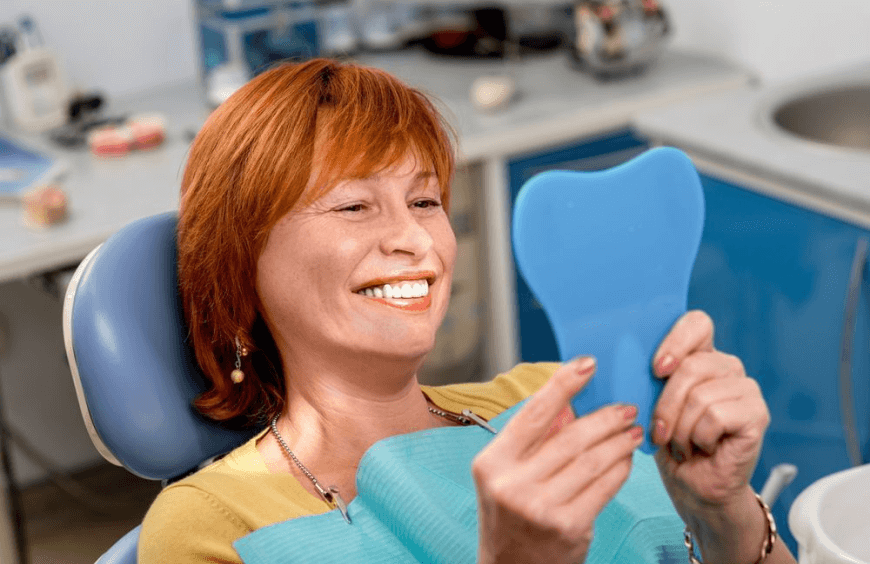
In the weeks and months following your procedure, Dr. Degel or Dr. Every-Degel will provide follow-up appointments throughout your recovery. At these visits, he or she will offer tips and guidance to further enhance your healing. It is important to schedule and attend these follow-up appointments to ensure that no infection or setbacks are. During this time, you can also discuss the possibility of receiving additional dental work that can further improve our smile. Once patients feel comfortable and fully healed, they often like to inquire about additional restorative or cosmetic treatments that can further improve the beauty and health of their smile. Depending on your goals, a full mouth reconstruction or a smile makeover may help you achieve the more complete, more beautiful smile you desire.
After Dr. Degel or Dr. Every-Degel place your implant posts, you will need to wait for your gums to heal before you can receive your final restoration. The healing process typically takes about four to six months. The crucial process of osseointegration will allow your implant to mimic the function of a tooth root while preventing the bone atrophy that naturally occurs after losing a tooth. This important step in the healing process is what will properly secure your implant, offering unparalleled stability, as well as helping to minimize and slow the deterioration of bone tissue.
Your specific timeline will depend on your unique procedure. For example, if you undergo a bone graft, recovery could take up to 12 months. Alternatively, if you receive teeth-in-a-day, your dentist will place mini implant posts and attach your restoration in the same appointment. Your dentist will provide a consultation before your procedure. At this time, he or she will plan your surgery and help you choose the right type of implants for your needs.
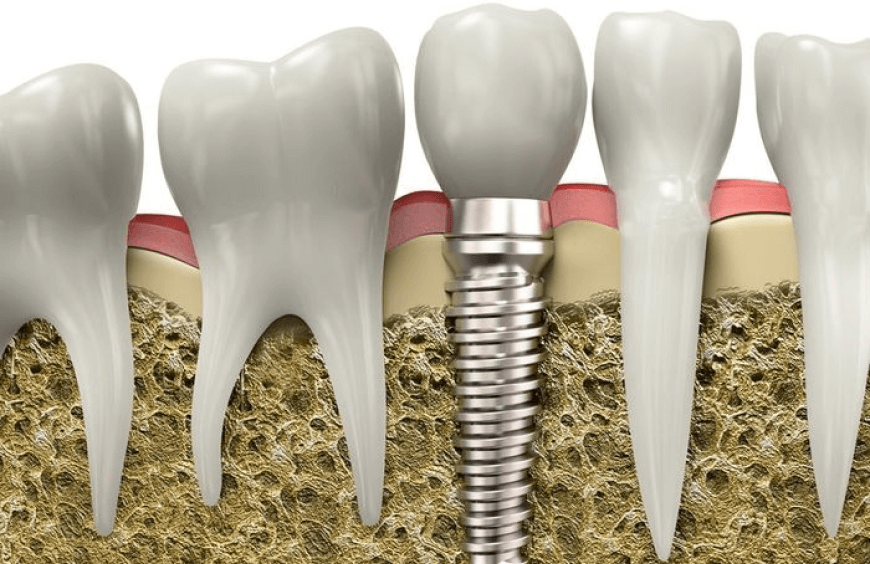
After your implants have been placed, bone cells in the jaw will begin to attach directly to the surface of the titanium posts during the osseointegration process. Over the course of four to six months, the area will heal and the titanium posts will become incorporated directly into the structure of the jaw, functioning as tooth roots. Once the posts have fully integrated, the surgeon will perform an additional procedure to attach abutments. The implant and abutment combine to provide a level of support for dental restorations like crowns, bridges, or dentures that cannot be matched.
When patients are missing teeth, dental implants are the best method to help restore the look and function of their smiles. Once implants are securely in place, they fuse with the jawbone during a process called osseointegration. At our practice, Drs. Degel and Every-Degel have used implant-supported restorations to help many patients achieve strong, beautiful smiles. The crucial process of osseointegration will allow your implant to mimic the function of a dental root while preventing the bone atrophy that naturally occurs after tooth loss. The stability provided by the process also ensures that patients will not have to worry about their prosthetics moving out of place so they can eat, speak, and smile with complete confidence.
After your dental implants have been placed, bone cells in the jaw will begin to attach directly to the surface of the titanium posts during the osseointegration process. Over the course of four to six months, the area will heal and the implants will become incorporated directly into the structure of the jaw, functioning as tooth roots.
During the osseointegration process, bone cells in the jaw will begin to attach directly to the surface of the titanium posts.
Once the posts have fully integrated, the surgeon will perform an additional procedure to attach abutments. The implant and abutment combine to provide a level of support for dental restorations like crowns, bridges, or dentures that cannot be matched.
Missing teeth can have an obvious effect on the aesthetics of your smile. However, many patients are unaware that a lost tooth can also negatively impact their overall oral health. After tooth loss has occurred, the jaw no longer receives stimulation, and the bone and surrounding tissues will eventually begin to deteriorate as a result. Dental implants are the only restorative treatment that can stop this bone atrophy. The implanted posts provide stimulation to the jaw, which helps to maintain strength and bone density. If our doctors believe your jawbone is not strong enough for surgery, we can perform a bone graft procedure to create a sufficient base for the implant.
Osseointegration allows dental implants to provide a lifetime of support for your dental restorations. At Astoria Dental Group, Drs. Degel and Every-Degel have a wealth of experience and knowledge in the planning, placement, and restoration of dental implants. While many practices must refer patients to outside specialists in order to complete dental implants treatment, we can plan and perform every step under one roof.
Bone grafting helps to preserve bone tissue after a tooth has been extracted. It also allows for quicker healing.
It will usually take about four to six months for your bone and gums to seal around the implant posts in a process called osseointegration. During this time, you may have several follow-up appointments, so your dentist can monitor your progress. While you recover, our dental lab will fabricate your restoration. It should be ready for placement as soon as your jaw has healed. When you have recovered, you will return for your second appointment.
It will usually take about four to six months for your bone and gums to seal around the implant posts in a process called osseointegration. During this time, you may have several follow-up appointments, so your dentist can monitor your progress.
Your dentist will check the fit of your restoration. If there are no necessary adjustments, he or she will attach your new teeth to the top of the implant posts. You will typically leave the office with full dental functionality and a beautiful smile.
Once your gums have fully healed, you will care for your implants just like you care for your natural teeth. You should brush your teeth at least twice a day and floss at least once. Special brushes and dental floss can help clean the hard-to-reach sides of your implant restorations. You should also schedule routine dental exams and cleanings. Although implant-supported restorations are not subject to decay or discoloration, the surrounding teeth can, of course, still get cavities. Even if you have a full implant-supported denture, proper hygiene can prevent gum disease. This condition can cause gum and bone recession, which could compromise the stability of your dental implants. With proper aftercare and hygiene, your dental implants could last the rest of your life.
At Astoria Dental Group, Dr. Clifford Degel often uses dental implants to restore his patients’ smiles. In this clip, you can learn more about various treatment options that are available with dental implants.
Our cosmetic dentists Drs. Clifford Degel and Carmen Every-Degel provide world-class dental care in a caring and friendly environment. Residents in Queens, Long Island, and throughout NYC trust them to create beautiful, healthy smiles.
With over 35 years of experience helping patients maintain, restore, and revitalize their smiles, Dr. Clifford Degel is considered a top dentist in Queens. Dr. Degel is known for exquisite cosmetic and restorative dentistry work at his state-of the-art, full service practice, Astoria Dental Group.
Recognized as a top Invisalign® dentist, Dr. Every-Degel provides dramatic transformations with the discreet, convenient system, along with various cosmetic treatments such as smile makeovers and other procedures designed to deliver a brighter, more brilliant smile.

Contact Us
Resources
Cosmetic Dentistry
Restorative Dentistry
Search for services, dental procedures, and expert tips from our patient resources.
Popular searches: Dental Implants, Cleanings, Insurance.